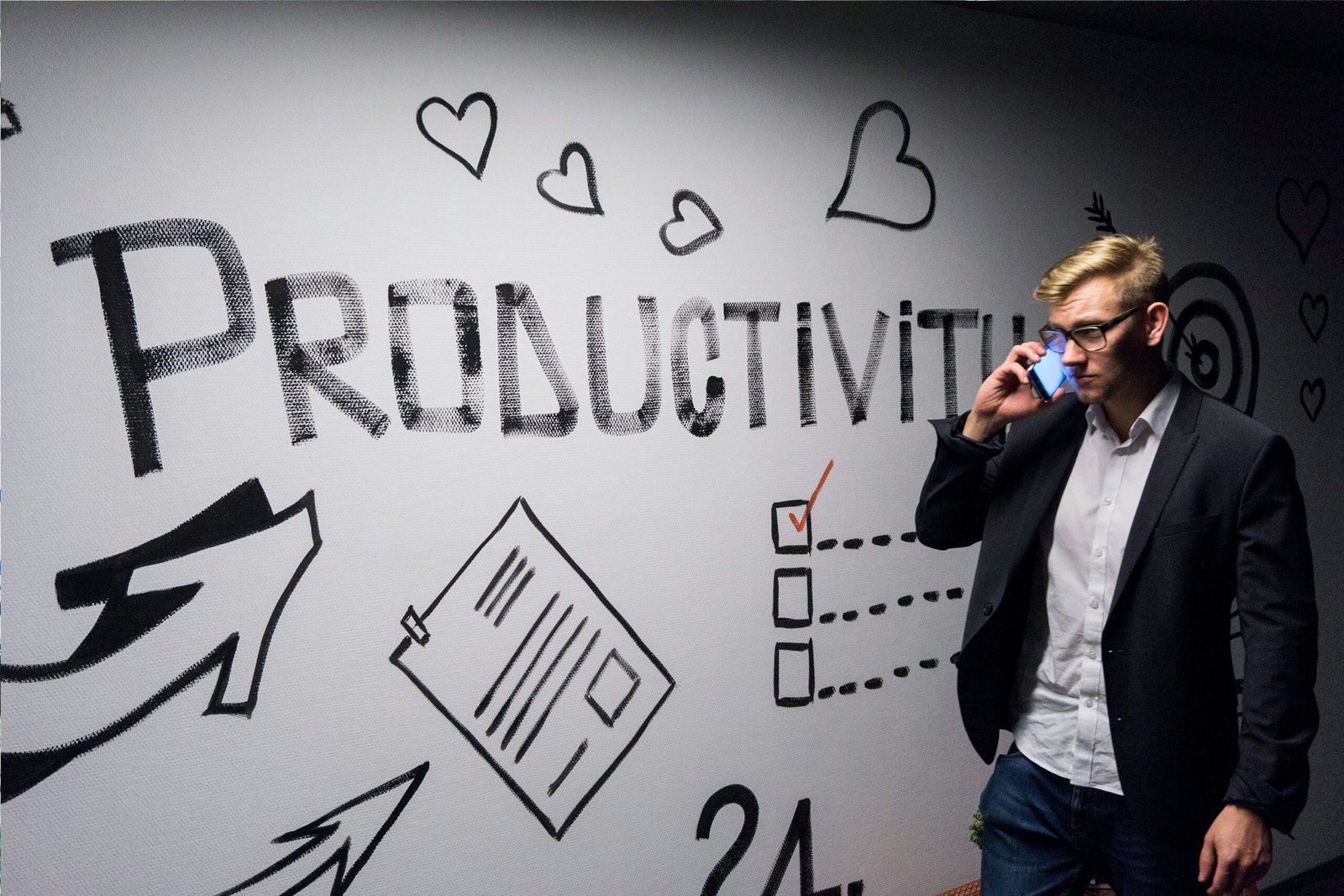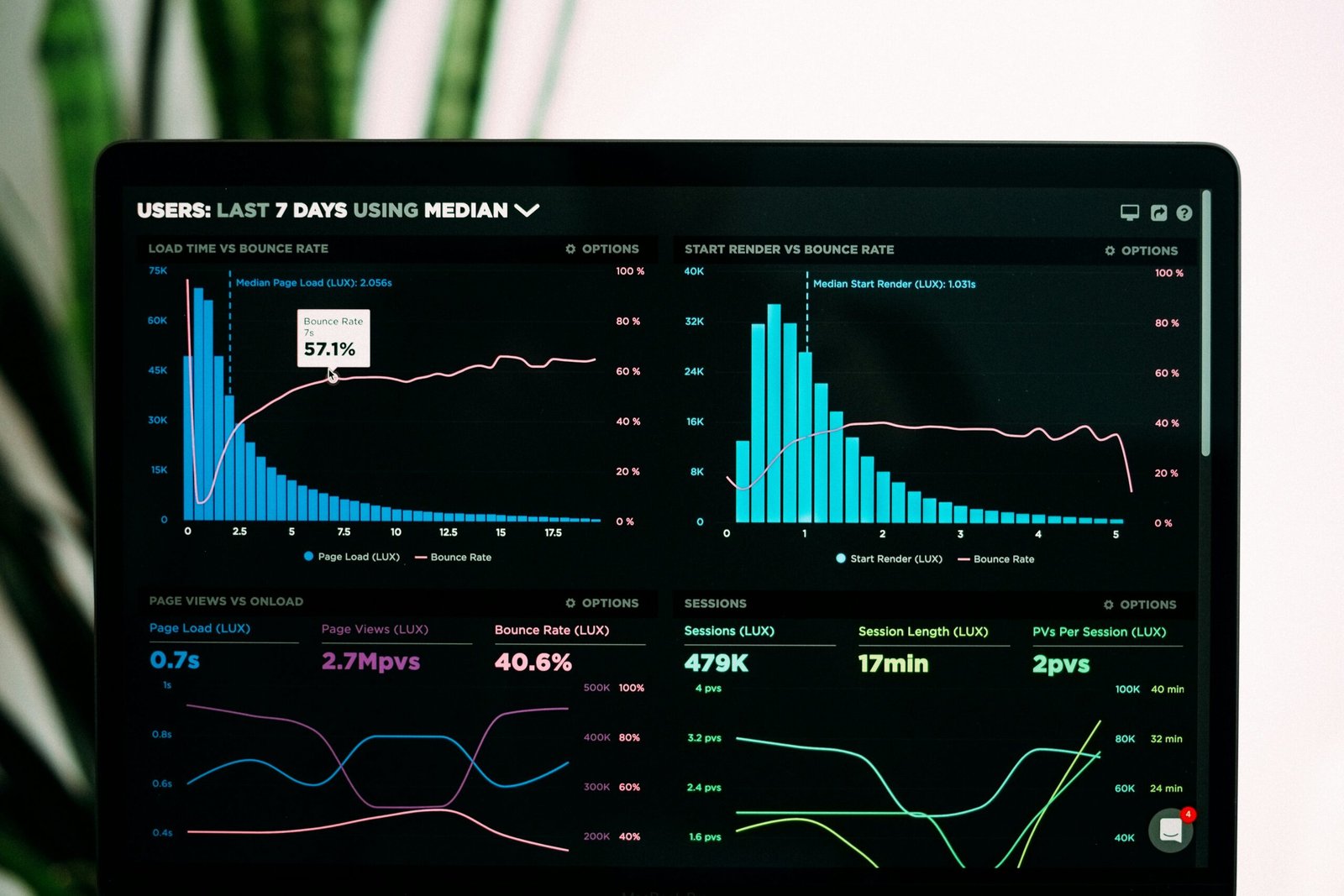
The Rule of Staying Focused: Mastering Concentration in a Distracted World
Understanding the Importance of Focus
In today’s fast-paced world, the ability to maintain focus has never been more critical. With an ever-increasing influx of information and constant distractions from digital devices and social media, staying focused is essential for achieving productivity and quality in both professional and personal tasks. The importance of focus is underscored by its direct correlation with enhanced work performance and personal satisfaction.
Staying focused allows individuals to allocate their cognitive resources more efficiently, resulting in higher productivity and superior outcomes. A study by the University of California, Irvine, found that it takes an average of 23 minutes and 15 seconds to regain focus after an interruption. This indicates that frequent distractions can significantly impede workflow and decrease overall efficiency. By minimizing interruptions and honing in on tasks at hand, individuals can achieve more in less time, thereby enhancing their productivity.
Moreover, the quality of work improves when one is deeply engrossed in a task. Focus enables individuals to delve deeper into their work, fostering creativity and critical thinking. This leads to a higher standard of output, whether in report writing, problem-solving, or creative endeavors. The American Psychological Association emphasizes that multitasking can reduce productivity by up to 40% and increase errors, further supporting the need for sustained attention on singular tasks.
Personal satisfaction is another significant benefit of maintaining focus. Achieving a state of flow, where one is fully immersed and engaged in an activity, can lead to a sense of fulfillment and accomplishment. This state is often described as being “in the zone,” where time seems to fly by, and the task feels almost effortless. The positive emotions associated with this state contribute to overall well-being and are a compelling reason to cultivate focused attention.
Despite these benefits, the modern environment poses numerous challenges to maintaining focus. Digital devices and social media platforms are designed to capture and hold our attention, making it difficult to concentrate on more meaningful tasks. Additionally, the culture of multitasking, often seen as a virtue, can fragment our attention and diminish our effectiveness. Understanding these challenges is the first step in overcoming them and harnessing the power of focus to enhance productivity, quality of work, and personal satisfaction.
Identifying Common Distractions
In the contemporary landscape, distractions are ubiquitous, affecting both our professional and personal lives. One of the most pervasive distractions is technology. Mobile phones, computers, and social media platforms constantly vie for our attention. Notifications, instant messages, and the endless scroll of social media feeds can significantly impede our ability to concentrate on tasks at hand. The omnipresence of these devices makes it challenging to maintain a steady focus, leading to diminished productivity and fragmented attention.
Environmental factors also play a significant role in disrupting our concentration. Noise pollution, such as traffic, conversations, or even background television, can create a chaotic atmosphere that hampers our ability to work efficiently. Interruptions from colleagues or family members can further exacerbate this issue, breaking the flow of thought and necessitating time to regain focus. Additionally, an unorganized workspace can contribute to mental clutter, making it difficult to prioritize tasks and maintain concentration.
Internal factors, often overlooked, can be equally detrimental. Stress is a primary internal distraction that can preoccupy the mind, making it hard to concentrate on any given task. High-stress levels trigger the body’s fight-or-flight response, diverting mental resources away from cognitive functions needed for focused work. Similarly, lack of sleep is a crucial factor that affects our cognitive abilities. Sleep deprivation leads to reduced attention span, slower cognitive processing, and impaired memory, all of which severely impact our productivity.
In sum, these distractions—whether technological, environmental, or internal—have the potential to derail our focus and productivity. Understanding and identifying these common distractions is the first step towards mitigating their impact, thus enabling a more focused and efficient approach to both work and personal tasks.
The Science Behind Focus
The ability to maintain focus in a world rife with distractions is deeply rooted in the intricate workings of the brain. Central to this process is the prefrontal cortex, a region responsible for higher cognitive functions such as decision-making, problem-solving, and maintaining attention. When we concentrate on a task, the prefrontal cortex orchestrates various neural networks to filter out irrelevant stimuli and prioritize pertinent information, thereby enhancing our ability to stay focused.
Neuroscience has shown that the brain operates on a system of neurotransmitters, with dopamine playing a critical role in maintaining attention. Dopamine is often referred to as the “feel-good” neurotransmitter because it regulates pleasure and reward mechanisms in the brain. When we focus on a task and achieve small victories or progress, dopamine is released, reinforcing the behavior and making it easier to maintain concentration over time.
Another key concept in understanding focus is cognitive bandwidth. Cognitive bandwidth refers to the mental resources available for processing information and solving problems. When we attempt to multitask, our cognitive bandwidth is split among the various tasks, leading to decreased efficiency and increased likelihood of errors. Research has consistently shown that multitasking can impair cognitive performance, as the brain is forced to rapidly switch between tasks, disrupting the flow of attention and reducing the depth of processing.
Experts such as Dr. Daniel Levitin, a cognitive neuroscientist, have highlighted that frequent task-switching can lead to mental fatigue and diminished productivity. Levitin points out that the brain’s executive system is not designed to handle multiple complex tasks simultaneously, which underscores the importance of sustained focus for optimal performance.
In summary, understanding the neuroscience behind focus reveals that maintaining attention involves a delicate interplay of brain regions, neurotransmitters, and cognitive resources. By recognizing these factors, individuals can adopt strategies to enhance their concentration and navigate the challenges posed by a distraction-laden environment.
Strategies to Enhance Focus
In today’s fast-paced world, maintaining focus can be a daunting task. However, by implementing effective strategies, you can significantly improve your concentration. One such technique is the Pomodoro Technique, which involves working in focused 25-minute intervals followed by a 5-minute break. This method helps to manage time efficiently and prevent burnout, making it easier to stay concentrated on the task at hand.
Another powerful tool to enhance focus is mindfulness meditation. By practicing mindfulness, you train your mind to stay present and reduce the impact of distractions. Start with just a few minutes a day and gradually increase the duration as you become more comfortable. This practice not only aids in improving focus but also contributes to overall mental well-being.
Setting clear and achievable goals is also crucial for maintaining focus. Break down larger tasks into smaller, manageable steps and set deadlines for each. This approach helps to minimize overwhelm and provides a clear path to follow, making it easier to stay on track and complete tasks efficiently.
Creating a distraction-free environment is another essential strategy. Identify potential distractions in your workspace and take steps to eliminate them. This might include turning off notifications on your phone, using noise-canceling headphones, or setting up a dedicated workspace that is free from clutter. A well-organized and quiet environment can significantly enhance your ability to concentrate.
Incorporating these strategies into your daily routine can lead to a noticeable improvement in your focus and productivity. The key is to be consistent and patient, as building these habits takes time. By taking proactive steps to manage your environment and train your mind, you can master the art of concentration in a world full of distractions.
Creating a Focus-Friendly Environment
Establishing a focus-friendly environment is paramount in mastering concentration amidst the myriad distractions of modern life. The initial step involves decluttering and organizing your workspace. A tidy, well-organized environment not only enhances productivity but also reduces cognitive overload. Ensure that your desk is free of unnecessary items and only essentials are within reach. This clarity extends to your digital workspace; organize your computer files and desktop to mirror the physical tidiness.
Minimizing interruptions is crucial in maintaining a focused state. Start by managing notifications on your devices. Limiting the number of alerts you receive can significantly reduce distractions. Utilize the “Do Not Disturb” mode on your phone or computer during critical work periods. Additionally, productivity tools like task managers and time-tracking apps can help streamline your workflow, ensuring that you remain on task and aware of your progress.
Setting boundaries with colleagues and family members also plays a vital role in maintaining concentration. Communicate your need for uninterrupted work periods and establish clear signals, such as a closed door or a specific sign, to indicate when you should not be disturbed. For remote workers, creating a dedicated workspace separate from communal areas can help delineate work time from personal time, reinforcing these boundaries.
Moreover, incorporating elements that enhance comfort and well-being can further promote focus. Ergonomic furniture, adequate lighting, and a comfortable temperature can make a substantial difference in your ability to concentrate. Personalizing your workspace with calming elements, such as plants or artwork, can also create an environment conducive to sustained attention.
By thoughtfully designing both your physical and digital environments, you can significantly bolster your ability to concentrate. The combination of decluttering, managing notifications, utilizing productivity tools, and setting clear boundaries forms the foundation of a focus-friendly environment, ultimately enhancing your overall productivity and well-being.
Building Focus-Enhancing Habits
In today’s fast-paced world, developing habits that support sustained focus is paramount. Establishing routines that foster concentration can significantly impact productivity and overall well-being. Regular exercise, adequate sleep, healthy eating, and scheduled breaks are foundational elements in cultivating an environment conducive to focus.
Regular exercise is not only beneficial for physical health but also for mental acuity. Engaging in consistent physical activity increases blood flow to the brain, enhancing cognitive functions such as memory and concentration. Activities like yoga, running, or even a simple walk can substantially improve one’s ability to maintain focus.
Adequate sleep is another critical factor. Quality sleep revitalizes the brain, allowing it to function optimally. Sleep deprivation, conversely, can lead to impaired cognitive abilities, making it challenging to concentrate. Establishing a regular sleep schedule and ensuring a restful environment can significantly enhance focus during waking hours.
Healthy eating plays a crucial role in maintaining concentration. A balanced diet rich in nutrients supports brain health. Foods such as leafy greens, nuts, and fish, which are high in omega-3 fatty acids, are particularly beneficial. Avoiding excessive sugar and caffeine can prevent energy crashes that often disrupt focus.
Scheduled breaks are essential for sustaining long-term concentration. Continuous work without breaks can lead to mental fatigue, reducing overall productivity. Implementing techniques such as the Pomodoro Technique, where work intervals are interspersed with short breaks, can help maintain high levels of focus.
Habits are formed through consistent practice and repetition. To build new, focus-enhancing routines, start by setting clear, attainable goals. Break these goals into manageable steps and incorporate them into your daily schedule. Consistency is key—adhere to your routine even on days when motivation wanes. Over time, these practices will become ingrained, naturally supporting sustained focus.
By integrating regular exercise, adequate sleep, healthy eating, and scheduled breaks into daily life, one can develop habits that significantly enhance concentration. These routines not only improve productivity but also contribute to overall mental and physical well-being.
Overcoming Mental Barriers
Maintaining focus in today’s distraction-filled environment can be a daunting task. Common mental barriers such as procrastination, anxiety, and negative self-talk often impede our ability to concentrate. Understanding and addressing these barriers is crucial for mastering concentration.
Procrastination, a frequent obstacle to focus, often stems from fear of failure or perfectionism. To combat procrastination, one can employ cognitive-behavioral techniques such as breaking tasks into smaller, manageable parts and setting specific, achievable goals. By doing so, the overwhelming nature of a task diminishes, making it easier to start and maintain momentum.
Anxiety can also hinder concentration by consuming mental bandwidth that would otherwise be directed toward productive tasks. Strategies to manage anxiety include practicing mindfulness and engaging in regular physical activity, both of which have been shown to reduce stress levels. Techniques like deep breathing and progressive muscle relaxation can also provide immediate relief from anxiety, allowing for better focus.
Negative self-talk, the internal dialogue that criticizes and doubts one’s abilities, can be particularly damaging to concentration. Replacing negative thoughts with positive affirmations can significantly improve one’s mental state. For instance, transforming a thought like “I can’t do this” into “I am capable and prepared” can shift the mindset and enhance focus.
Consider the story of Sarah, a marketing professional who struggled with procrastination and anxiety. By implementing cognitive-behavioral techniques and practicing mindfulness, she learned to break her projects into smaller tasks and manage her stress effectively. Positive affirmations helped her rebuild confidence, ultimately transforming her approach to work and improving her ability to stay focused.
Addressing these mental barriers through targeted strategies can lead to significant improvements in concentration. By understanding the root causes of procrastination, anxiety, and negative self-talk, and actively working to overcome them, individuals can enhance their focus and achieve their goals more efficiently.
Measuring and Sustaining Focus Over Time
In today’s world of constant distractions, mastering concentration requires not only initial effort but also continuous monitoring and adaptation. Measuring one’s focus and productivity is crucial to understanding what works and what needs improvement. Various methods can be employed to track and measure focus, ensuring that individuals remain on course towards their goals.
One effective method is maintaining a focus journal. By dedicating a few minutes each day to jot down tasks completed, distractions encountered, and periods of deep work, individuals can gain valuable insights into their productivity patterns. This reflective practice helps in identifying peak focus times and recurring distractions, enabling targeted adjustments to daily routines.
Technology offers numerous tools to assist in tracking and sustaining focus. Productivity apps like Toggl, RescueTime, and Focus@Will provide detailed analytics on how time is spent, highlighting both productive intervals and potential areas of improvement. These apps often feature customizable settings and notifications to help users stay on track and minimize disruptions.
Self-assessment techniques further complement these tools. Regularly evaluating one’s concentration levels through self-assessment quizzes or mindfulness exercises can help individuals remain mindful of their focus. Incorporating techniques such as the Pomodoro Technique, which involves working in short, intense bursts followed by brief breaks, can be particularly effective in maintaining high levels of concentration.
It is essential to review and adjust focus strategies regularly. What works today might not be as effective tomorrow due to changing circumstances and evolving responsibilities. By periodically reassessing goals and methods, individuals can ensure that their focus strategies remain aligned with their current needs.
Ultimately, mastering concentration is a long-term endeavor that requires patience and persistence. By consistently measuring and adjusting focus strategies, individuals can navigate the distractions of modern life and achieve sustained productivity. Stay committed to the process, and the rewards of enhanced focus and efficiency will become evident over time.


